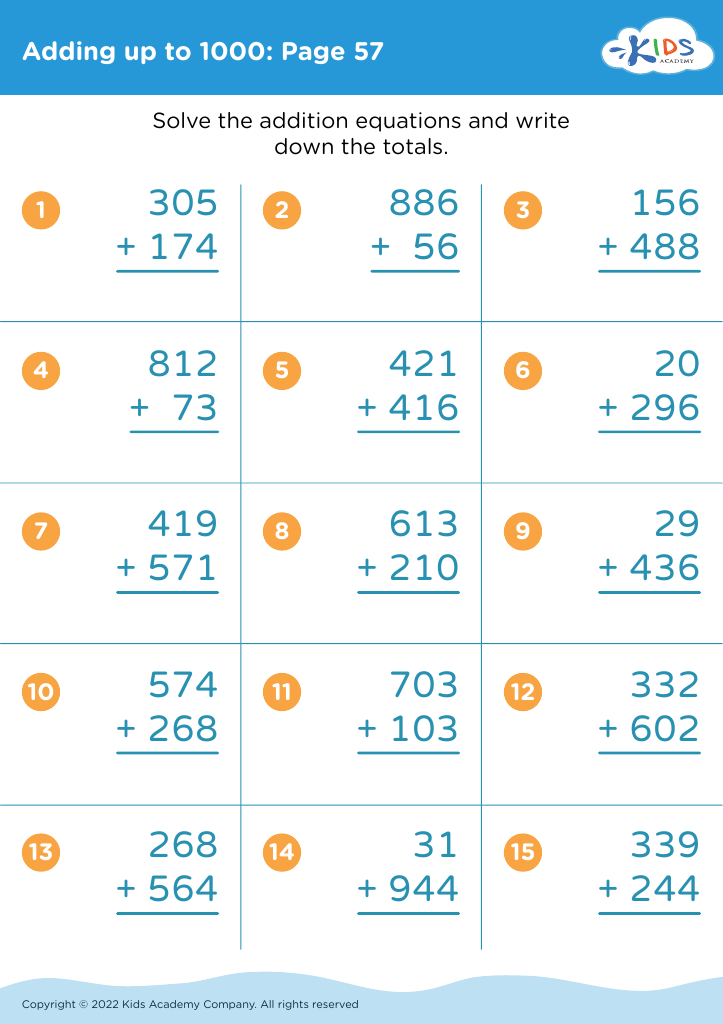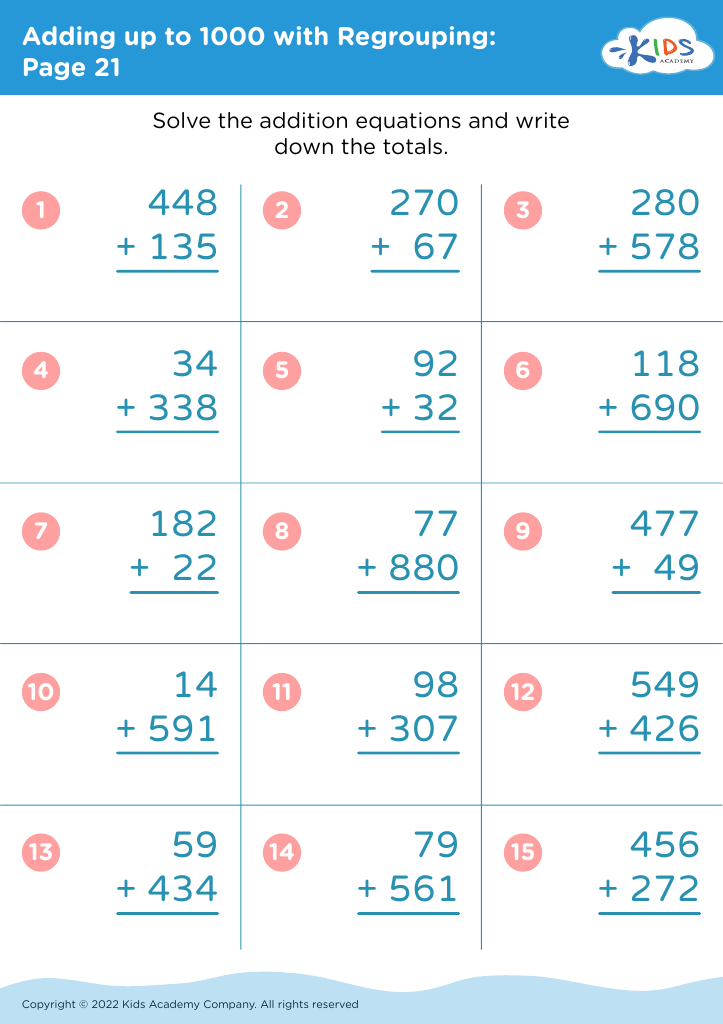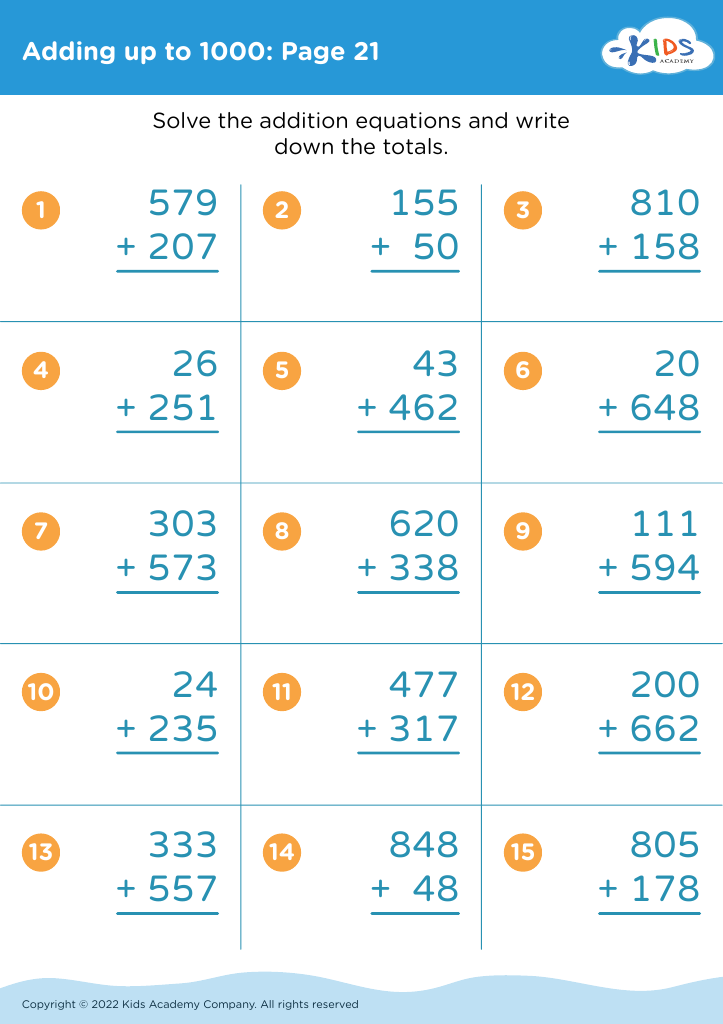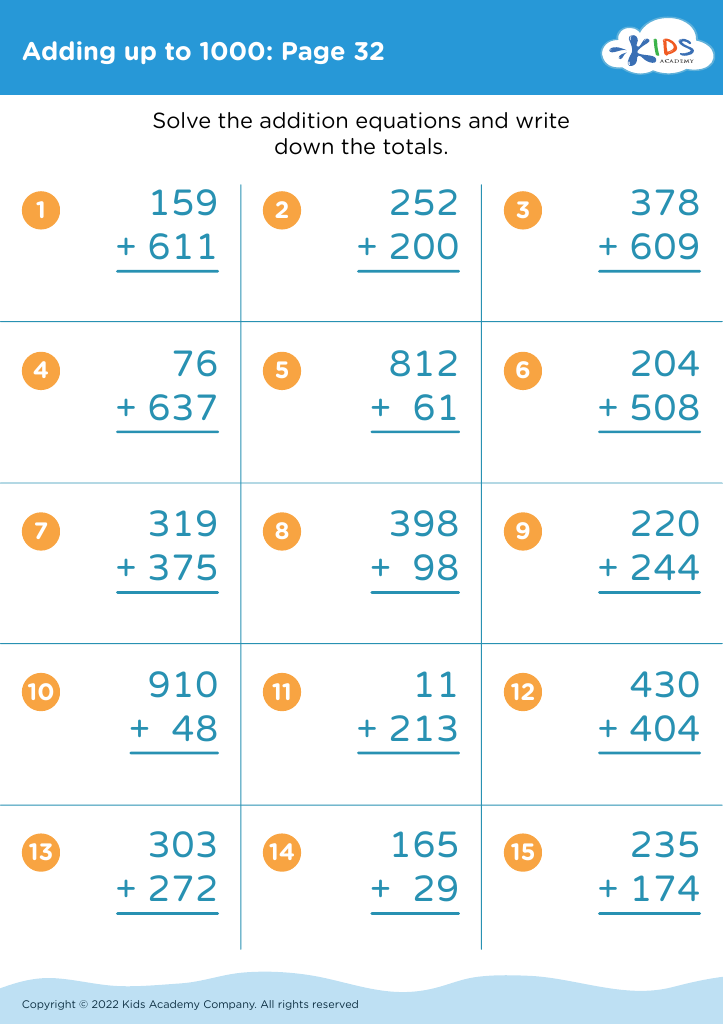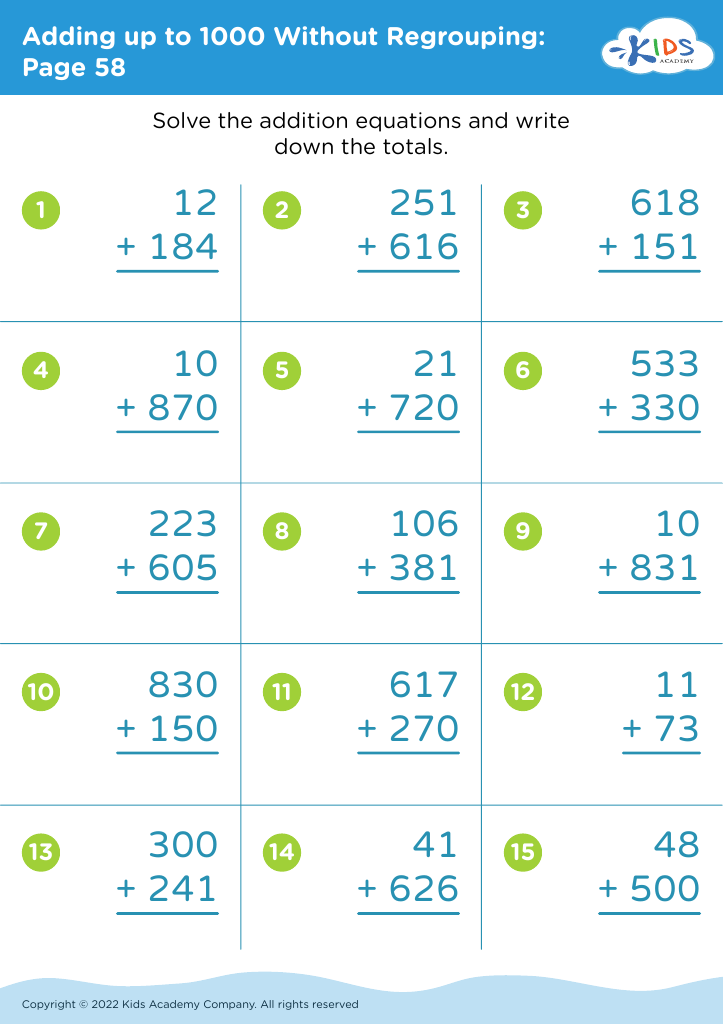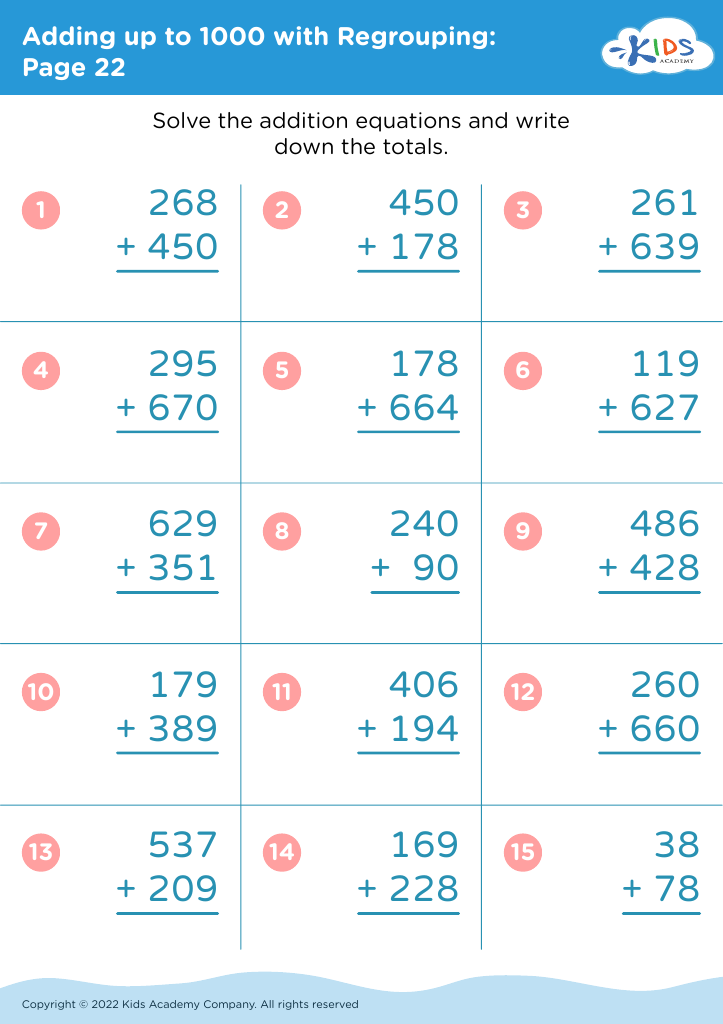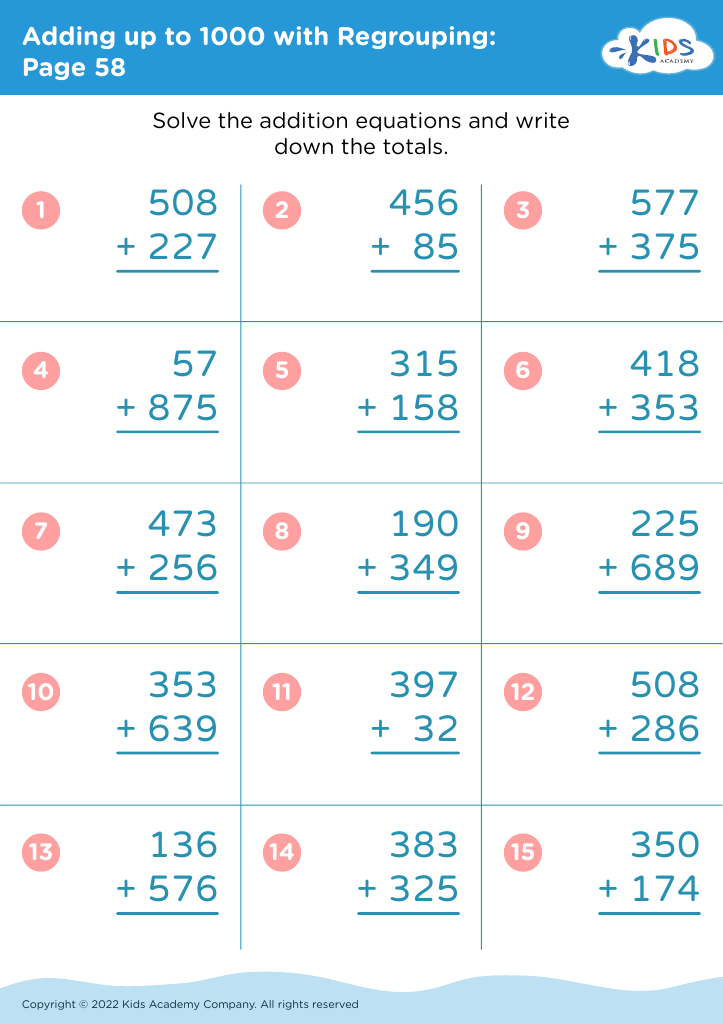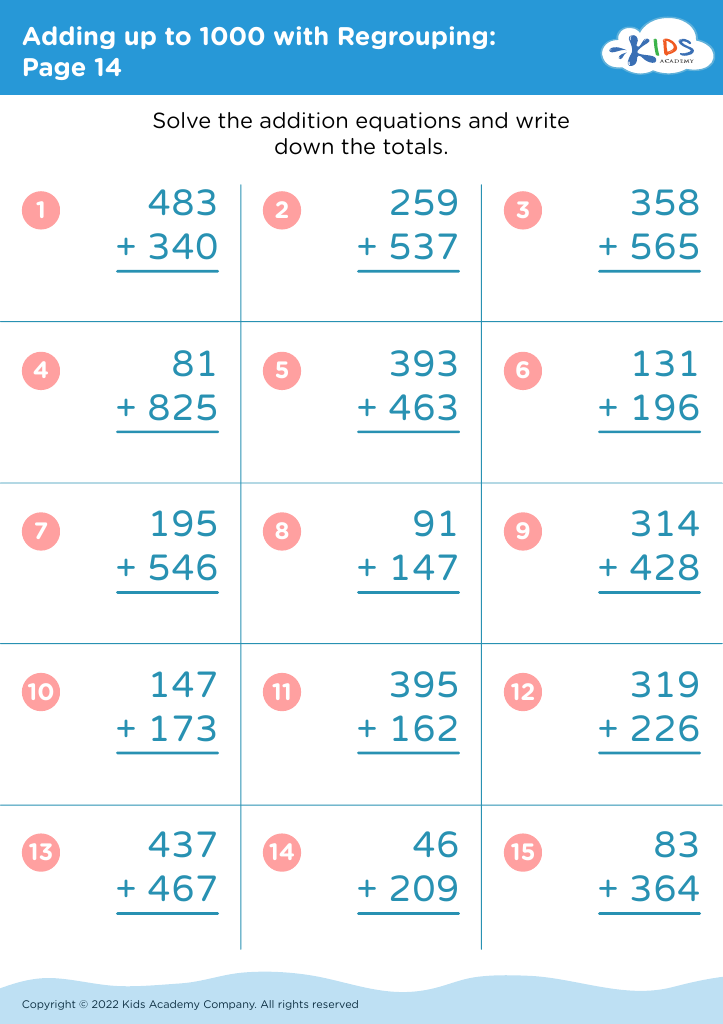Counting practice Adding up to 1000 Worksheets for 9-Year-Olds
19 filtered results
-
From - To
Our "Counting Practice: Adding up to 1000 Worksheets" for 9-year-olds are designed to enhance your child's addition skills in a fun and engaging way. These printable worksheets offer a variety of problems that help students practice adding large numbers, ensuring they grasp this critical math concept. Each worksheet is crafted to challenge young minds while building their confidence in addition. Perfect for both classroom and at-home learning, these activities align with educational standards and help students practice and improve their math skills efficiently. Download and print our worksheets to give your 9-year-old the tools they need to succeed in math!
Counting practice and adding up to 1,000 for 9-year-olds are crucial foundational skills in mathematics, essential for their academic and real-world applications. At this age, children are transitioning from basic arithmetic to more complex math problems, so mastering simple addition is key.
Firstly, building confidence in adding large numbers helps solidify their understanding of place value, which enhances their ability to perform operations with larger scale figures. This foundation is imperative as they move on to more complex operations such as multiplication and division.
Secondly, children will use these skills in many day-to-day activities, such as counting money, telling time, or measuring items. Practical experiences reinforce what they learn in the classroom.
Moreover, being adept with numbers fosters critical thinking and problem-solving abilities. When children are comfortable and proficient in math, they are more likely to engage confidently in other STEM subjects.
Furthermore, early math proficiency is correlated with higher academic achievement and greater opportunities in the future. It’s important for parents and teachers to support counting and addition practices to build a strong mathematical foundation, stimulate curiosity, and ensure children are prepared for more advanced math concepts, ultimately equipping them with essential life skills.
